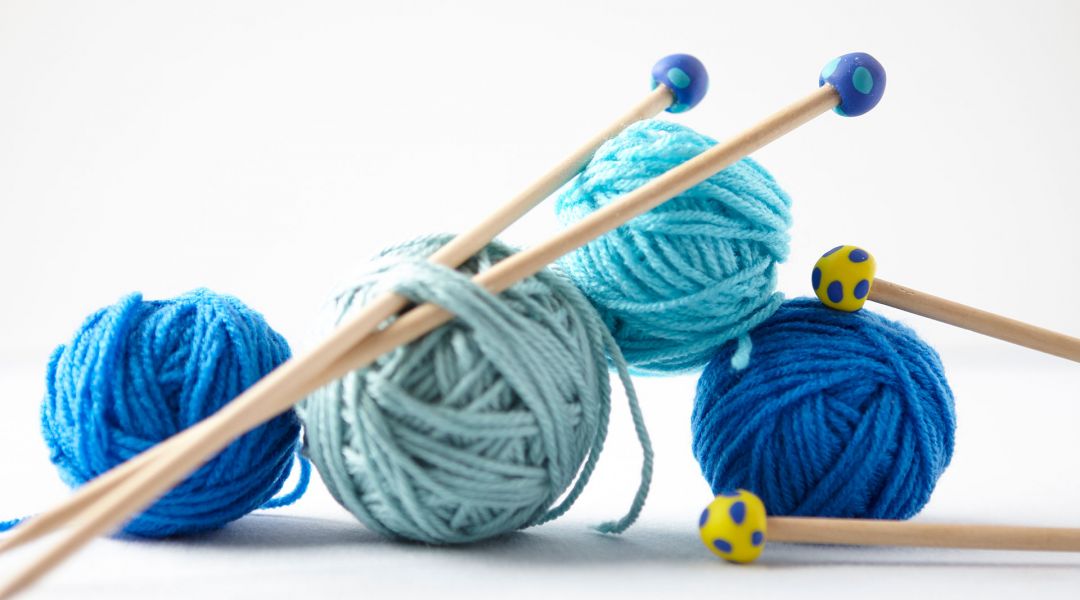
Knitting needles are an essential tool for any knitter, and they come in a variety of materials, each with its own unique features and benefits.
Metal Knitting Needles
Metal knitting needles are a popular choice among knitters because they are durable, long-lasting, and typically come in a wide range of sizes. They are also smooth and highly polished, which allows the stitches to slide easily on and off the needle. The most common metals used for knitting needles are aluminum, nickel-plated brass, and stainless steel.
Aluminum needles are lightweight and come in a variety of colors, making them easy to identify. They are also relatively inexpensive, making them a popular choice for beginners. However, aluminum needles can be somewhat slippery, which can make it difficult to control your stitches.
Nickel-plated brass needles are heavier than aluminum needles, which can help prevent hand fatigue. They are also highly polished, making them very smooth, and they come in a wide range of sizes. The downside to nickel-plated brass needles is that they can be somewhat more expensive than aluminum needles.
Stainless steel needles are highly durable and long-lasting. They are also very smooth, which allows the stitches to slide easily on and off the needle. Stainless steel needles are typically more expensive than aluminum needles, but they are a great investment for knitters who plan to do a lot of knitting.
Wood Knitting Needles
Wooden knitting needles are a popular choice among knitters because they are lightweight, comfortable to hold, and have a warm feel. They are also available in a wide range of sizes and materials, including bamboo, birch, and rosewood.
Bamboo needles are lightweight and highly flexible, which makes them a great choice for knitters who tend to have hand fatigue. They are also eco-friendly, as bamboo is a highly renewable resource. However, bamboo needles can be somewhat slippery, which can make it difficult to control your stitches.
Birch needles are highly durable and long-lasting. They are also smooth and highly polished, which allows the stitches to slide easily on and off the needle. Birch needles are a great investment for knitters who plan to do a lot of knitting.
Rosewood needles are highly polished and have a warm feel, which can be comforting during colder months. They are also highly durable and long-lasting, making them a great investment for knitters who want to build a collection of high-quality needles.
Plastic Knitting Needles
Plastic knitting needles are lightweight and inexpensive, making them a great choice for beginners or knitters on a budget. They also come in a variety of fun colors, which can make knitting more enjoyable. Plastic needles are typically made from polyethylene, which is a highly durable and long-lasting material.
However, plastic needles can be somewhat slippery, which can make it difficult to control your stitches. They are also less flexible than other materials, which can make it more difficult to knit with certain types of yarn.
Carbon Fiber Knitting Needles
Carbon fiber knitting needles are a newer material on the market and are quickly growing in popularity. They are lightweight, strong, and highly flexible, making them an excellent choice for both beginners and experienced knitters. Carbon fiber needles are also very smooth, allowing the stitches to slide easily on and off the needle.
The downside to carbon fiber needles is that they can be somewhat more expensive than other materials. However, they are a great investment for knitters who want a high-quality needle that will last a long time.
How to Choose the Right Material for Your Knitting Projects
When choosing knitting needles, it’s important to consider the type of project you’ll be working on, as well as your personal preference. Here are some factors to consider when choosing a material for your knitting needles:
- Yarn weight: The weight of your yarn will determine the size of the needle you need. Choose a material that is appropriate for the weight of your yarn.
- Knitting style: Your knitting style can also influence your choice of material. If you tend to knit tightly, you may want to choose a material that is more flexible, such as bamboo or carbon fiber. If you tend to knit loosely, you may want to choose a material that is less flexible, such as metal or plastic.
- Personal preference: Your personal preference is also important. Try out different materials to see which ones you like best.